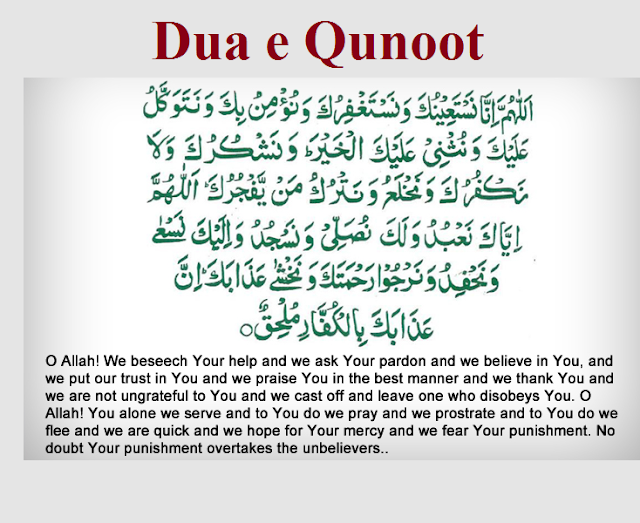


O Allah, You alone we worship, unto You alone we pray unto You alone we prostrate, and for You alone we strive. We abandon and forsake all those who reject You. We are grateful to You and refuse to be ungrateful to You. We cherish faith in You and place our trust in You. O Allah! We seek Your assistance and ask for Your guidance, and we beseech Your forgiveness and return to You in repentance. It can be offered after the Isha prayer right up to the break of dawn.īelow is a collection of the various du'a qunut that may be recited: The other Imams consider the Witr prayer as Sunnah Mu'akkadah. The Witr prayer, according to Imam Abu Hanifah is wajib (obligation). He would perform the Qunoot in the last Rak'ah of the Salah after performing Ruku and saying 'Sami'Allahu liman hamidah' (Allah listens to those who praise him) then put hands across navel/chest or raise hands (whilst still focusing on the place of Sujud) and supplicate the Qunoot, after which He would make Sujud and conclude the prayer.ĭu'a qunoot is recommended to be recited in the Witr prayer. It has been narrated in Abu Dawud that the Messenger of Allah used to recite al-Qunoot whenever a major difficulty or disaster befell the Muslims. However, it is more understood to be a special du'a which is recited during the prayer. It is one of those Sunnahs (Prophetic traditions) which many Muslims do not practice today.Īl-Qunoot has many linguistic meanings, such as humility, obedience and devotion. The Messenger of Allah used to recite Du'a al-Qunoot during Salat al-Fajr, Witr and sometimes during other prayers throughout the year.


 0 kommentar(er)
0 kommentar(er)
